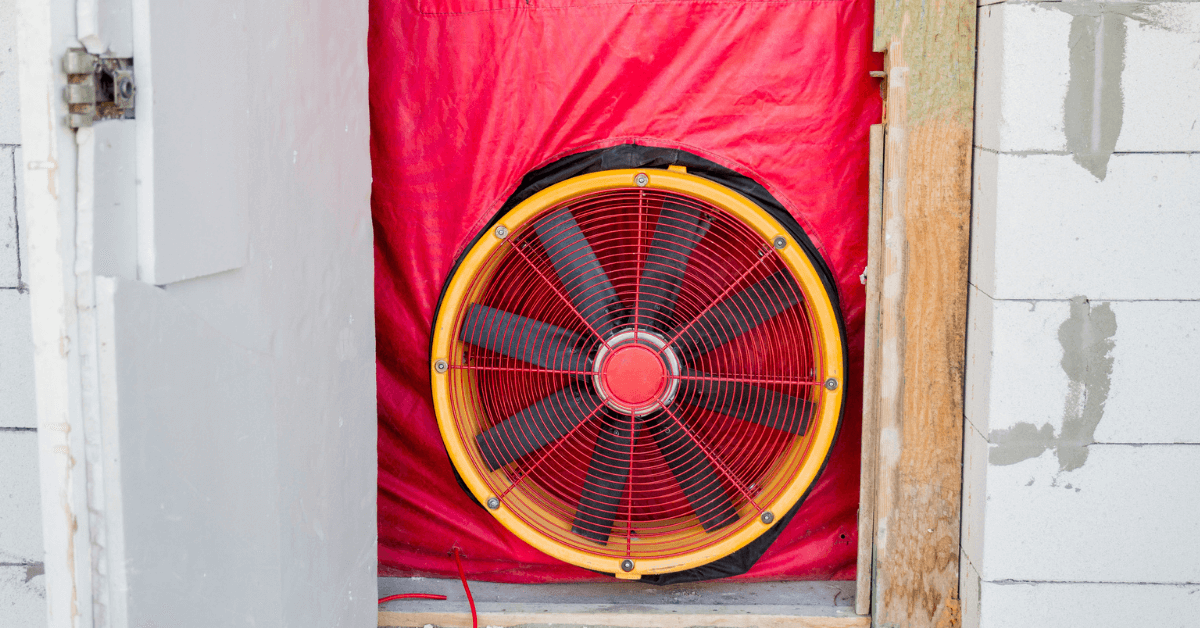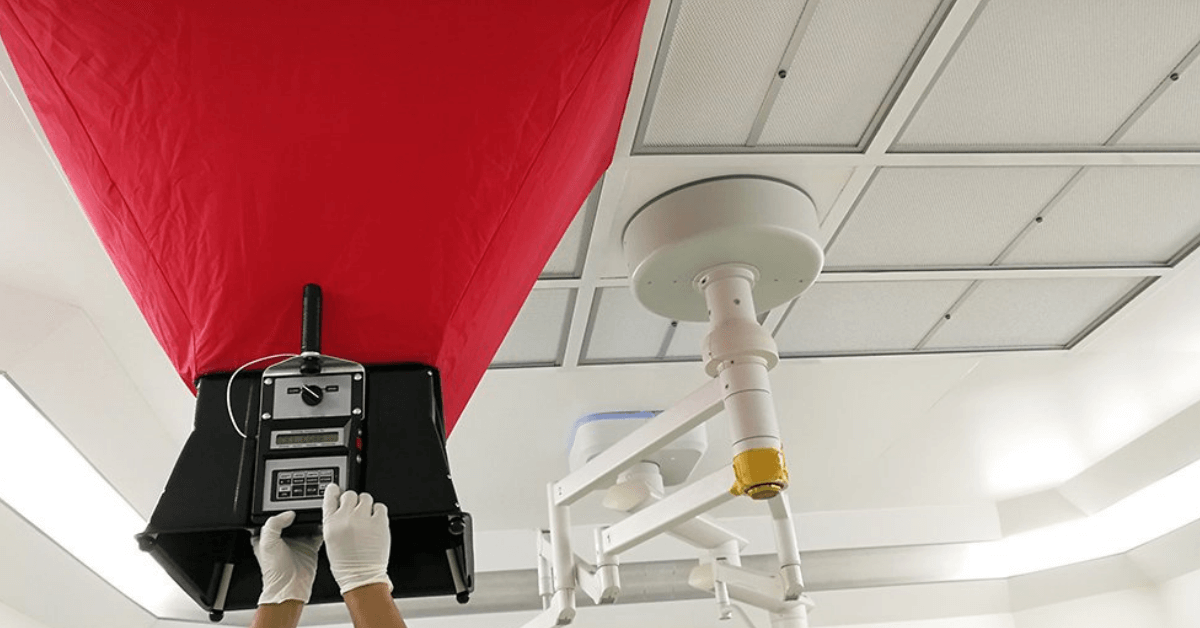If you’re building a new domestic property or commercial property of a certain size, it will need to undergo air tightness testing (also known as air permeability testing or air pressure testing) to comply with Part F of Building Regulations.
Air tightness testing assesses the building’s ‘air permeability’, checking for air leakage through gaps, holes and other areas. The Government has SAPs (Standard Assessment Procedures) in place for air tightness testing, setting standards buildings must comply with to be energy efficient.

Here we look at the most frequently asked questions, including when is air pressure testing required?
Falcon Energy are professional and qualified energy conservation experts that regularly undertake air tightness testing in properties and developments across the south east. Give our team a call on 01403 253439 to find out more about our air tightness services and to get a free quote.
When do I need to consider air tightness testing?
If you’re building a new residential property we would recommend talking to us about your air tightness test as soon as possible. Consulting us during the planning phase will ensure you’re building your properties to comply with air tightness testing regulations. If you instruct us during the build stage and things need changing in order to pass your air tightness test, then you run the risk of having to make costly and time consuming changes to all builds in your development.
The Falcon Energy team are fully qualified in air tightness testing and are also affiliated to IATS, the Independent Airtightness Testing Scheme. With our experience, we are able to advise you on air tightness and building design prior to the build, as well as during the build itself. We can help you establish how many units on your new homes development require testing and can liaise with Building Control to establish a testing schedule.
Which properties need air tightness testing?
Building regulations states that:
- New build residential properties and those over a certain size (500 m2) must undergo air tightness testing before being sold.
- Small developments of one or two properties that are exactly the same must have one of the buildings undergo air tightness testing. However, if the properties are of different construction then both must be tested separately.
- With larger developments, a proportion of the buildings must be tested, depending on the size and construction of the properties.
There are, of course, some exceptions to which properties need air testing and if you have any questions regarding how many need to be tested or about the exceptions, please contact us and we will be happy to help.
At what point in the build is the air tightness test carried out?
Falcon Energy will carry out air tightness testing when the following elements of the build have been completed. The SAP calculations also need to have been completed as this sets the target for the air tightness test.
- The walls are finished and have been plastered or decorated.
- The internal and external doors are fitted and fully operational.
- The windows are fitted and the glazing is complete.
- If applicable, the loft hatch has been installed and sealed.
- The kitchen and bathroom have been installed.
- All skirtings, sockets and light switches are fitted and complete.
- The door frames, windows, skirtings and services have had sealant applied to prevent air leakage.
When we carry out the test the windows will need to be shut, trickle vents must be closed and traps will need to be filled with water.

Why is the air tightness test important?
New properties are tested for air tightness to ensure energy efficiency, which means less wasted energy polluting the environment. Buildings which meet the required standards have an efficient airflow, meaning less energy is needed to heat the property. Not only does this mean that the carbon footprint of the property is lower and there are less harmful CO2 emissions going into the atmosphere, it also reduces the energy bills for the home.
How can Falcon Energy help you?
Our expert team can advise you on your domestic or commercial building project, whatever the size, right from the start of the project. We work across the south east with architects and builders to ensure your properties achieve the required air tightness standards.
For a free, no obligation quote on air tightness testing for your residential or commercial property, or to simply discuss your requirements, call us now on 01403 253439 or email info@falconenergy.co.uk.
Alternatively, fill out our contact form here and a member of the Falcon Energy team will be in touch.
